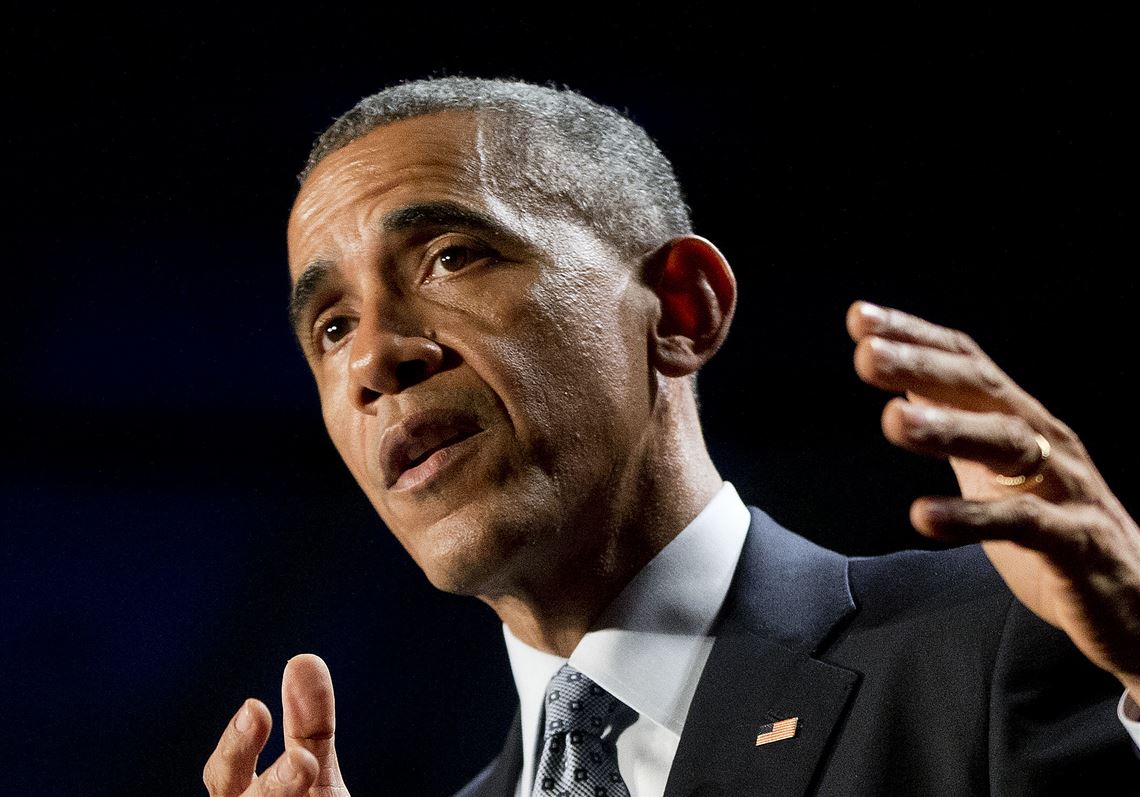One of the first issues the Republican-controlled Congress faces is whether to give President Barack Obama the authority to negotiate trade agreements that Congress would quickly vote up or down without the opportunity to amend.
Mr. Obama wants that power — known formally as trade promotion authority and informally as “fast track” — in connection with the Trans Pacific Partnership. He believes the 11-nation trade pact will invigorate the U.S. economy and create jobs by opening up fast-growing markets to U.S. exports.
Republican congressional leaders and major business groups also back the treaty. But opponents, including labor unions and environmental groups, say fast track makes it easier to negotiate trade deals that ship U.S. jobs overseas, hurt worker rights, and threaten the environment.
Congress grants fast track authority on a temporary basis. The last agreement expired in 2007 and efforts to renew it have failed.
Given the Republican majority in Congress and Mr. Obama’s request for fast track authority in his State of the Union address, it might seem like approval would be a slam dunk.
But there are reports the White House is not taking that for granted and is lobbying congressional Democrats for support. There is also opposition on the other side of the aisle from Republicans who wonder why their colleagues would want to cede more authority on any issue to a Democratic president.
“It’s certainly something that’s very valuable to have,” said Chris Moore of the National Association of Manufacturers, a large trade group that supports the measure. “It’s really important for job growth and competitiveness.”
Fast track supporters say it makes the U.S. a more credible negotiator because foreign countries will be more willing to enter talks if they know a trade deal won’t be subject to endless bickering in Congress. Fast track legislation can provide guidance to the White House on what kind of treaty should be negotiated, supporters say. There are also provisions that require trade negotiators to consult with Congress, the private sector and other interested groups, they add.
Critics contend big business has had the biggest influence on trade talks, which is one reason why the programs have failed to create the jobs promised. They believe using fast track to reach agreement on the Trans Pacific Partnership will produce the same disappointing results.
“We do trade deals knowing we’re going to have increased trade deficits,” said Communications Workers of America President Larry Cohen. “There’s not one good reason for doing it.”
Opponents cite the North American Free Trade Agreement, or NAFTA, as well as a free trade agreement with South Korea that took effect in 2012. Obama administration officials predicted the Korean pact would boost U.S. merchandise exports to the Asian country by about $10 billion.
However, since the end of 2011, goods exports to Korea have held steady while imports from Korea have jumped more than 20 percent. As a result, the U.S. merchandise trade deficit with Korea widened from $13.2 billion at the end of 2011 to $22.8 billion in the first 11 months of last year.
The Korean agreement “has been a complete bomb, as was completely predictable,” said Alan Tonelson, whose RealityChek blog covers trade, economic and related issues.
The manufacturer’s group says nearly half of Pennsylvania’s manufacturing exports in 2013 went to countries that signed trade agreements negotiated through fast track. The U.S. has a $59 billion manufacturing trade surplus with the 20 countries covered by those agreements, the group says.
Case Western Reserve University law professor Juscelino Colares cautions against relying on such trade statistics. Mr. Colares, who serves on the roster of U.S. panelists who hear NAFTA disputes, said a lot more is reflected in those numbers than trade policy, including how healthy economies around the globe are as well as developments such as automation and information technology.
“There’s no way the loss of manufacturing jobs in the U.S. ... was only the result of trade policy,” he said.
Steel producers and others say fast track legislation should include a provision that prevents U.S. trading partners from manipulating their currencies. They say China’s and other Asian countries’ practice of artificially deflating the value of their currencies crimps U.S. exports to those markets and makes it easier for those countries to ship goods here.
Mr. Colares agrees on the need for such provision, but adds “I’m not sure that’s the [trade promotion authority] we’re going to get.”
Scott Paul said it’s not clear what Congress will do. Mr. Paul is president of the Alliance for American Manufacturing, a union-business group that has not taken a stand on fast track.
“The proponents don’t have the votes to pass it and the critics can’t say they have the votes to stop it,” Mr. Paul said.
Len Boselovic: 412-263-1941 or lboselovic@post-gazette.com.
First Published: February 1, 2015, 5:00 a.m.
















